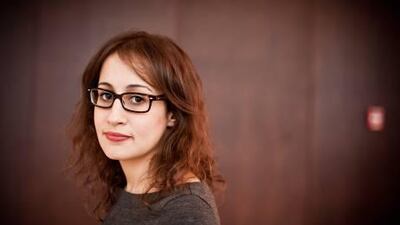DUBAI // The Arab Spring could result in a setback for women's rights instead of advancing them, an academic has warned.
Dr Ebtisam Al Ketbi, an associate professor of political science at UAE University, said she feared events unfolding in the region would harm women instead of helping their cause.
"In Egypt, for example, you see the emergence of the Salafists who believe that women need constant protection," Dr Al Ketbi said.
"They believe that a woman's place is at home and that she should not be permitted to work. These fundamentalist beliefs are on the rise and this is worrying during this vulnerable period."
Dr Al Ketbi was among the rights activists and scholars who gathered yesterday to speak about women, civil society and leadership in a new Arab world as part of Dubai Debates, an independent forum for Arab youth.
The debate brought together several influential voices from the region, including the Tunisian activist and blogger Amira Yahyaoui, whose cousin Zouhair Yahyaoui was jailed for publishing the satirical website TuneZine, and Mohammed Abu Obeid, a Palestinian women's rights advocate and a TV presenter on Al Arabiya.
The debaters began by addressing the proposal that the media had exaggerated the role of women in the Arab Spring.
Sumaya Tayara, a Syrian activist based in the UAE, disagreed strongly, saying the role of women was not restricted to demonstrations but also included their efforts behind the scenes.
"We have the mothers and wives of martyrs who were lost during the revolutions, and who are now taking on the responsibility of supporting their families on their own," Ms Tayara said.
"We also have women who made great contributions to relief efforts and those who have been involved in fund-raising."
On the idea that a western model of women's rights should be applied to the region, Ms Yahyaoui told the audience: "There is no specific model for human rights."
"There should be no differentiation between women's rights and human rights," she said. "And human rights are not western, nor are they Arab - they are universal."
Dr Al Ketbi said renewed religious discourse was crucial for women's rights to progress in the region.
"Religious interpretation has been mixed with tribal traditions that have nothing to do with religion," she said. "The misinterpretation of religious values is core to the problem. Until this is recognised, establishing rights for women will continue to be a challenge."
The audience loudly applauded Dr Al Ketbi's words.
As part of the debate, the audience had been told they would be voting on each motion presented.
But after a fierce, 30-minute debate about western feminism compared with an Arab model, the current affairs commentator Mishaal Al Gergawi, the moderator, announced there would be no vote on it.
Other motions discussed introducing a quota system for women in Arab parliaments and whether constitutional guarantees could change social attitudes.
Identifying "men" and "women" in constitutions immediately allows room for disparity, Ms Yahyaoui said.
"In Tunisia, for example, the law has been modified to say 'all citizens'," she said.
"But the problem is not only with the constitution, it's with the Arab mentality."
Dr Al Ketbi said a women's movement was needed to further female rights.
"We might have great legislation but the problem of women's rights is a social, mental and economic one," she said.
"Unless women value themselves and are socially empowered, we will be moving in a vicious circle."

